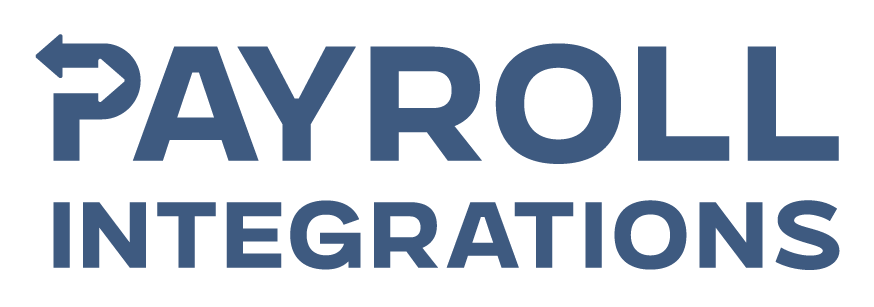Small businesses today face more challenges than ever. In 2021 alone, approximately one-third of all small businesses (SMBs) closed due to varying economic pressures during the lockdown period, the lingering effects of which are ongoing despite the broader economic recovery.
In this challenging landscape, small businesses must leverage every available advantage to stay competitive and viable. One critical area where they can gain significant improvement is in their payroll management.
Modern payroll systems, particularly those featuring universal API-based integrations, offer a streamlined approach to managing HR tasks. These systems automate numerous processes that are traditionally tedious and prone to human error.
By adopting such technology, small business owners can ensure that compensation schedules, benefits packages, and tax compliance are handled with precision and timeliness—all key functions that small business owners can’t afford to get wrong.

At the same time, market consolidation saw many smaller operations bought by larger ones within the last several years, creating a macroeconomic climate that can often feel like it is pushing smaller businesses out—particularly when it comes to the hyper-competitive labor market.
SMBs are less able to absorb the bottom-line pressures presented by an inflationary economy than larger corporations able to leverage economies of scale.
Reports the Public Policy Institute of California, while inflation has slowed significantly from its peak of 9% in June 2022—hovering instead around 3.5% since October 2023—that prices have remained high and rose so quickly means that, de facto, the slowing inflation rate isn’t enough to argue that we are out of the woods.
This is especially relevant for certain sectors such as grocery where food prices are up 27% since April 2019, a deeply negative pressure on the buying power of middle-income families across America (with implications across all sectors and services) when essential goods make up 75% of all their spending.
In another new report, Truist’s Small Business Pulse Survey found that SMB owners are so stressed and concerned with inflation that they are prioritizing short-term needs over long-term planning.
Furthermore, in a 2024 report by Constant Contact, new businesses were found to be struggling to effectively market their goods and services, with 73% of SMBs surveyed ‘lacking confidence in their marketing strategies’ and another 80% reporting concern over the ongoing negative impacts of the economic climate on their operations.

Another key finding stands out for any small business looking to improve or automate existing processes: SMBs find they simply don’t have enough time to prioritize marketing.
While marketing is just one part of any business or service organization, any small business owner can attest that time all but never feels on your side no matter what you are doing.
Payroll Integrations for small businesses: Why you should care
Payroll integration, or integrated payroll services, simply refers to any means by which common, critical HR functions that may otherwise be manual, tedious, or time-consuming are instead handled by software—often with the aim of automating those manual processes.
Any business owner looking to streamline these critical functions—from payroll to benefits to tax compliance—is essentially looking to make the lives of their HR staff easier by significantly reducing their administrative burdens.
Yet, for many SMB owners, they may have no HR team to begin with. In fact, according to new research by Secure Data Recovery of 1,005 Americans working in SMBs (defined as less than 50 employees), 88% reported having not a single dedicated HR professional available to them. That often means that owners are in charge of their own HR challenges.

If anything, this emphasizes the need for integrated HR and payroll systems for small businesses. With a payroll integration system for small businesses—or even the right partner to help the organization along—essential HR processes that take up owners’ valuable time can be automated while ensuring the highest levels of fidelity to local, regional, and nationwide tax code and reporting requirements.
That automation capability saves owners and leadership time in more ways than one. Manual payroll integration has always carried the risk of manual input errors (like any manual data entry).
However, when that error has to do with an employee's benefits provision, compensation, or taxes, correcting those errors can take hours or even days–to say nothing of the risks to employee satisfaction at a time when keeping skilled employees on is as challenging as ever (especially when 45% of HR staff have to manually re-enter data every payroll).
In other words, always getting payroll and HR processes right the first time saves time, money, and perhaps even costly resignations while managing an SMB.
More than anything, owners and leaders tasked with managing complex processes receive greater peace of mind, even if their organization doesn’t have the staff it needs for dedicated HR professionals.
Why Modern API Integrations are the smart way to do HR
Yet, there are better and worse ways to invest in payroll integration for any given small organization. Today, businesses big and small continue to define innovation most often in terms of digitizing operations.
It is a response to several prevalent trends, from rising industry competition to ameliorating macroeconomic pressures on the bottom line to better serving a consumer base that is more plugged in than ever.
For owners seeking out the best payroll service for small businesses, any given partner’s implementation method is a key deciding factor. For the most up-to-date integration services, modern, universal API implementations can help employers save 50 to 100 hours per year by providing a one-size-fits-all approach that automatically accommodates a much wider range of organizations, needs, and functions.
Ensuring both smooth implementation and a custom fitting to an organization’s needs is done through an API integration-platform-as-service (iPaaS), ensuring every small organization need is met from employee benefits to tax-advantaged accounts, retirement and 401k planning, compliance, and reporting.
What’s more, providers specializing in modern, universal API implementations are not only going to be the quickest and easiest to integrate with existing workflows but also provide the best security at a time when cybersecurity attacks are as common as ever.
By implementing modern API security standards together with payroll integration, small organizations can ensure their security is proactively guarded, helping to create an organizational culture of greater trust, security, and compliance while ensuring better data ownership and consent standards.
It bears re-emphasis: as small businesses and organizations, nobody can afford to waste time. SMBs have to fight for every dollar earned and every client signed in an economy where people’s wallets are tight and getting tighter…where every employee needs more from organizations than ever to stave off competing offers.
With payroll integration in place, a majorly tedious part of small business operations is in hand via an API solution that not only ensures timeliness and compliance, but security. That’s a smart investment at a time when one of the only ways to stay competitive is to get everything between a business and the customers out of their way.


